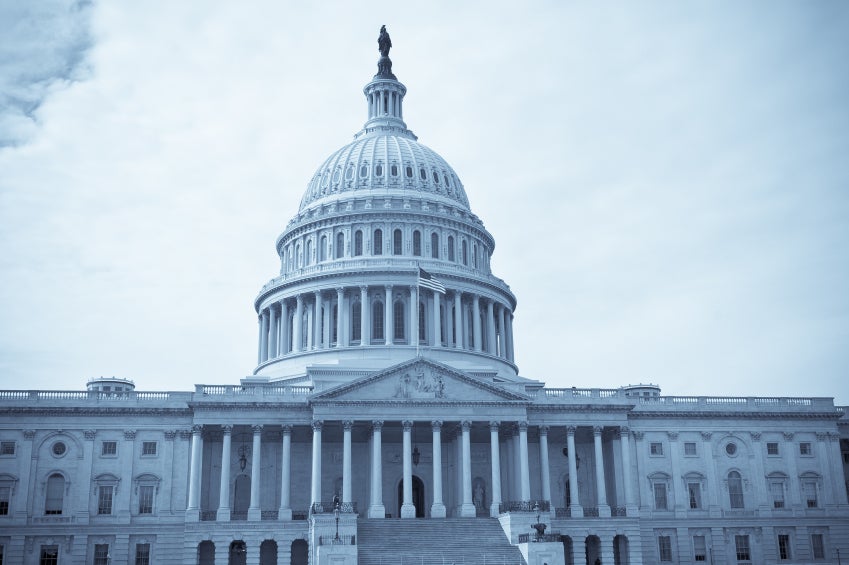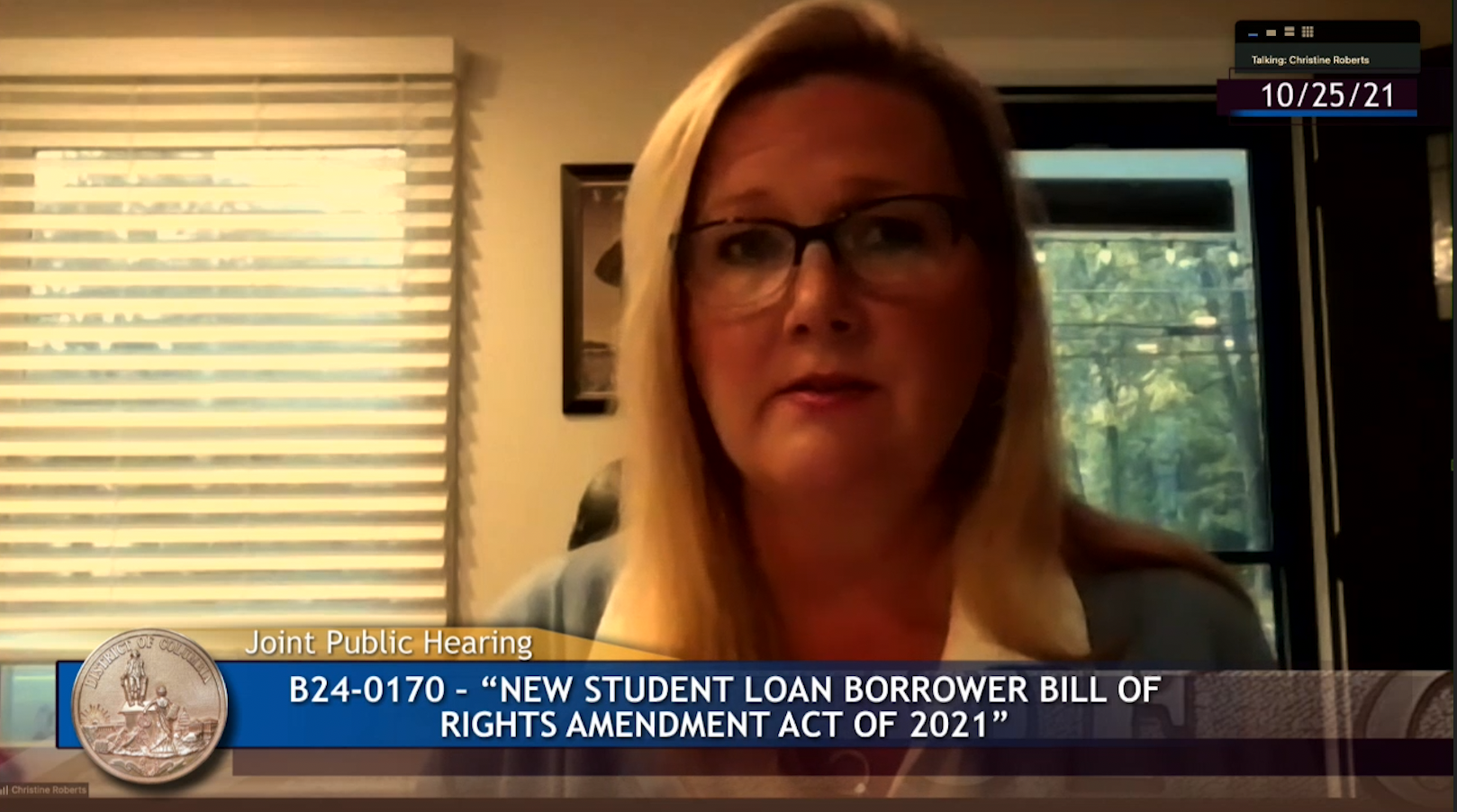CBA Letter re HR 2674, the College Affordability Act

October 28, 2019
The Honorable Bobby Scott
Chairman
House Education and Labor Committee
2176 Rayburn House Office Building
Washington, DC 20515
The Honorable Virginia Foxx
Ranking Member
House Education and Labor Committee
2101 Rayburn House Office Building
Washington, DC 20515
Dear Chairman Scott and Ranking Member Foxx:
On behalf of the Consumer Bankers Association (CBA), I write to share our views regarding the College Affordability Act (CAA), H.R.4674, which would reauthorize and amend the Higher Education Act of 1965. CBA serves as the voice of the retail banking industry, and its membership includes the private sector lenders who make the majority of non-federal student loans to help families finance a postsecondary education.
The State of Student Loan Debt
As lawmakers look for solutions to help borrowers out from under the growing and worrisome student debt crisis, it is important to have a clear understanding of the crux of the problem. Student loan debt in America currently totals $1.58 trillion. The federal government dominates the market by holding an astonishing 92 percent of this debt totaling $1.44 trillion. With one in five federal student loan borrowers seriously delinquent or in default and many experiencing increasing loan balances post-graduation, it is clear that excessive federal student lending is driving this crisis.
By contrast, only 8% of the total outstanding student loan debt—about$ 119 billion—is held by private lenders, including members of CBA. By working with borrowers to ensure an ability to repay and a clear understanding of loan terms, private lenders are setting up borrowers for a positive financial experience post-graduation. In fact, 98 percent of private student loan borrowers are successfully repaying their loans due to strong underwriting standards, responsible terms, and thorough financial counseling before the borrower assumes the loan.
Federal Refinancing of Private Education Loans
The proposal would only accept performing loans, thus offering nothing to federal borrowers most in need, and would potentially draw those with high debt totals, likely graduate students, who are the most likely to receive high-earning jobs post-graduation. As we have noted, private loan borrowers are successfully repaying loans on time. The private market already offers refinancing options with competitive interest rates. Using federal subsidies to eliminate the private sector from education lending would be bad policy that would direct taxpayer funds to those who do not need help while leading toward an absolute federal government monopoly—all while the Department of Education is already having trouble serving the borrowers it has now. With 98 percent of private borrowers in good standing, there is no clamoring for help in repaying private education loans. The refinancing proposal would create an expensive taxpayer-subsidized solution to a problem that does not exist. We strongly urge the Committee to eliminate the private loan refinancing provision.
Responsible Borrowing Limits on Federal Parent and Graduate PLUS Loans
Congress should place annual and aggregate caps on Parent and Graduate PLUS loans to restore responsible borrowing and help constrain college costs while still providing access to quality institutions. CBA recommends setting the cap at 150% of the annual national average of tuition and required fees, derived from the Digest of Education Statistics published by the National Center for Education Statistics with the Department of Education, which compiles the averages every year for all institutions of higher education. Each year the average adjusts up or down by a small amount based on market conditions. The cap for each student would not be affected by eligibility for the other types of federal aid, including Pell grants, SEOG and federal Stafford loans, and students could receive institutional aid and seek additional private loans if necessary to meet tuition costs. In other words, this market-based cap would impose some constraint on college price increases without reducing access.
Every dollar loaned by the Department of Education today correlates to a subsequent year over year $0.25 to $0.63 tuition increase, according to the Federal Reserve Bank of New York. Parents of undergraduate students may borrow Parent PLUS loans to supplement Direct Loans and help fund their child’s education up to as much as schools demand. Graduate students, who are already eligible to receive up to $20,500 in Direct Unsubsidized Loans annually, may also access Graduate PLUS loans up to the cost of attendance. The combination of PLUS loans available without limits and virtually no underwriting gives colleges and universities no reason to restrain tuition increases while they can rely on students’ access to rampant over-lending by the government. An ample market-based cap would benefit all consumers and a give colleges and universities an unavoidable incentive to set tuition prices within a range that all students and families can reasonably afford.
Know Before You Owe Federal Student Loans
Federal student loan disclosures should be improved by raising them to the same pro-consumer standard that private lenders meet through Truth in Lending Act (TILA) disclosures required for all bank loans, including private student loans. These disclosures outline key terms such as interest rate, fees, monthly payment, total cost of the loan, and annual percentage rate (APR) in a clear and concise manner to help improve transparency and prevent over-borrowing.
Over the years, policymakers have offered multiple solutions to help borrowers with repayment when they are unable to meet their obligation. This approach attempts to address the problem after a borrower has assumed the debt but fails to address root causes of our nation’s federal student loan debt problem: the steadily increasing cost of college due to federal over-lending. Rather than focusing exclusively on how to help borrowers after they are already heavily in debt, policymakers should hold colleges accountable for their student outcomes and create sensible safeguards to ensure sound financial decisions are made before students and parents take out federal loans.
Private borrowers receive better, more accurate, and clearer disclosures than the Department of Education currently provides. Access to accurate, personalized information about the true cost of a federal student loan is critical to making an informed decision about how much, if any, debt to take out to finance a postsecondary credential. Unfortunately, federal student loan borrowers must weed through more than a dozen pages of generic disclosures and squint to read fine print to unearth key loan terms. The federal loan disclosures provided at disbursement fail to provide terms specific to individual borrowers. Instead, they give broad categories of interest rates, fees, and estimated monthly payments, and lack information on the total cost of the loans.
CBA supports H.R. 1161, the Student Loan Disclosure Modernization Act, bipartisan legislation introduced by Representatives Emanuel Cleaver (D-MO) and Jim Banks (R-IN), which makes some of these needed improvements to student loan disclosures. The bill would improve the Department of Education’s inaccurately named Plain Language Disclosure by clearly explaining the costs and terms of federal student loans to help borrowers better understand their loan commitments and increase their prospects for successfully repayment.
The CAA calls for improvements to federal loan disclosures, and CBA supports unequivocal annual disclosures of accumulated debt and monthly payments. CBA urges the Committee to include these items but also to expand the specific, required disclosures before loans are made and during the in-school process to provide students and their families a uniform, easily comparable way to know what they are borrowing.
Pell Grants
The Federal government should help those most in need. Rather than originating large loans to borrowers without the means for repayment, Congress should increase the availability and amounts of Pell Grants for those who need them.
College Accountability
Colleges receiving federal student aid must have incentives to offer affordable programs that encourage completion and ultimately prepare students for successful careers. CBA supports measures to improve accountability of institutions of higher education by evaluating them based on the success of their students and requiring colleges to demonstrate accountability by sharing the risk of default with the federal taxpayer.
Fair Value Accounting
Congress should require that the cost of federal student loan programs be calculated according to fair value accounting methods, which take into account market risk. The Congressional Budget Office and other economists have stated that fair value is a more accurate way to calculate the cost of federal student loan programs. Because the current Federal Credit Reform Act method of accounting understates the risk—and therefore the costs—of the federal program, reforms appear costly to the federal balance sheet. Fair value accounting therefore is a technical, but critically important, component needed to pursue federal student loan reforms.
CBA encourages policymakers to address the root cause of student debt: the cost of college and federal over-lending. Improved up-front and ongoing disclosures about the terms and conditions of federal loans are a critical first step. Banks are eager to offer solutions based on their excellent record serving customers through effective disclosures and, when necessary, working with borrowers to help overcome obstacles to repayment.
Thank you for your consideration of our views. CBA welcomes the opportunity to work with the Committee to improve the legislation in the interest of students and taxpayers.
Sincerely,
Richard Hunt
President and CEO
Consumer Bankers Association



